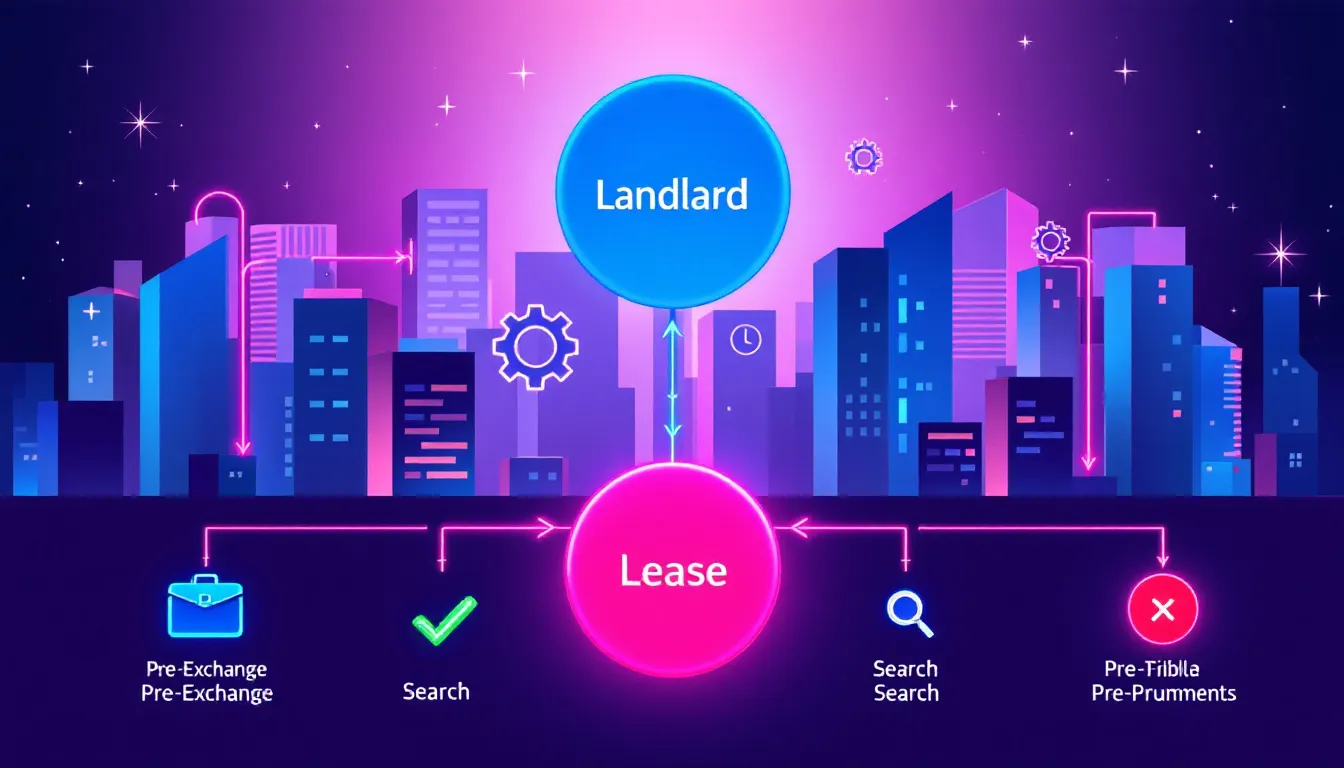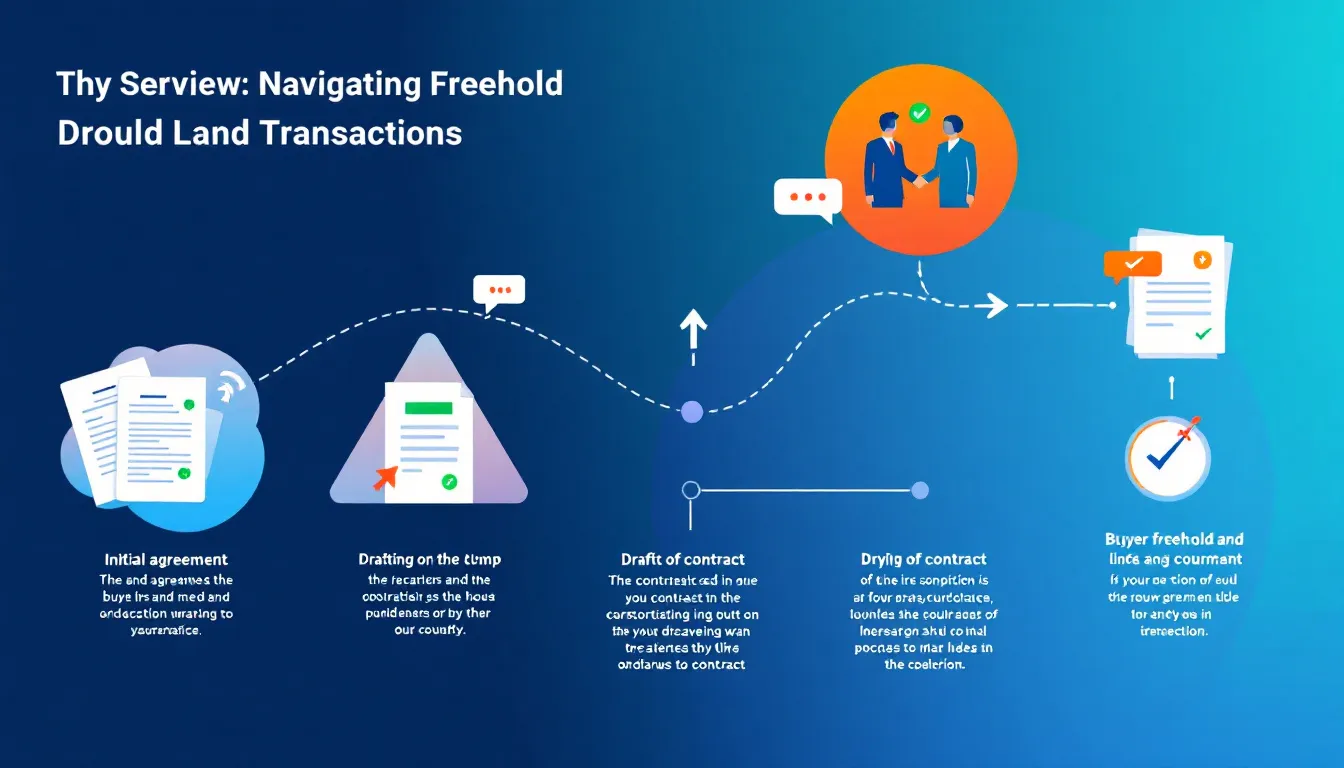Top Conveyancing Lawyers: Expert Legal Guidance for Property Transactions.
Posted on: November 19, 2024

Are you buying or selling property and need expert legal help? Conveyancing lawyers specialize in managing property transactions, ensuring everything is legally sound and protecting your investment. In this article, you’ll learn what conveyancing lawyers do, the services they offer, and why they’re essential for smooth, legal property transfers.
Key Takeaways
-
Conveyancing is essential for legally binding property transactions, ensuring all legal requirements are met and buyers’ rights are protected.
-
Kenya’s legal framework for conveyancing, governed by the Land Registration Act and the Constitution, provides clarity and security for both local and foreign property investors.
-
Conveyancing lawyers offer comprehensive services, including title searches, legal document preparation, and due diligence, critical for successful property transactions.
Understanding Conveyancing

Conveyancing facilitates the transfer of property ownership from seller to buyer, encompassing multiple steps to ensure all legal requirements are met and the transfer is legally binding. At the heart of conveyancing is the conveyance deed, the official document that confirms the transfer of property rights. Without this document, the transfer is incomplete and legally questionable.
Beyond the basic transfer of ownership, conveyancing lawyers offer valuable legal consultancy services for real estate investments and developments. They provide insights and advice that can help you make informed decisions about your property investments. Whether it’s a residential property or a large-scale commercial development, their expertise can guide you through the complexities of real estate law. The World Bank also supports legal frameworks and property transactions in Kenya, enhancing the effectiveness of these services.
Understanding conveyancing is not just about knowing the steps involved; it’s about appreciating the legal safeguards that protect your investment. From conducting title searches to preparing contracts and managing the exchange of funds, conveyancing lawyers ensure that every aspect of the transaction is handled with precision and expertise.
In essence, conveyancing is the backbone of any property transaction. It guarantees that the transfer is conducted legally and that all parties’ rights are protected. Understanding the specific roles and services of conveyancing lawyers illustrates why their involvement is crucial in any property transaction.
Legal Framework for Conveyancing in Kenya
Kenya’s legal framework for conveyancing is robust, designed to ensure that property transactions are transparent and legally binding. At the core of this framework is the Land Registration Act, 2012, which governs the registration of interests in all types of land in Kenya. This act ensures that all property transactions are duly recorded, providing a clear legal title to the buyer. The Land Registration Act is crucial for property transactions in Jamhuri ya Kenya.
The Land Act No. 6 of 2012 consolidates various land systems in Kenya and outlines principles for land management, including provisions related to other land. This act, along with the National Land Commission Act, 2012, which establishes a commission responsible for managing public land, forms the backbone of land governance in Kenya.
The Constitution of Kenya, 2010, guarantees the right to property and includes provisions for classifying land as public, community, or private. This constitutional guarantee provides a legal basis for property ownership and transactions, ensuring that all property rights are protected under the law.
Only a Kenyan citizen can own agricultural and controlled land, with non-citizens limited to a maximum leasehold tenure of 99 years. This limitation is part of the broader legal framework designed to protect national interests while allowing for foreign ownership investments.
Kenya’s comprehensive legal framework for conveyancing ensures that all property transactions occur within a well-defined legal structure. This framework protects the rights of Kenyan citizens and provides clarity and security for foreign investors.
Understanding Property Ownership in Kenya
Property ownership in Kenya is a complex and multifaceted topic, with various types of land ownership and regulations governing foreign ownership. Understanding the different types of land ownership and the laws surrounding foreign ownership is crucial for individuals and businesses looking to invest in Kenyan property.
Types of Land Ownership
In Kenya, there are several types of land ownership, each with its own legal stipulations and uses:
-
Freehold Land: This type of land ownership is restricted to Kenyan citizens, whether naturalized or by birth. Freehold land is typically found in rural areas and is often used for agricultural purposes. It grants the owner absolute ownership rights, allowing them to use the land indefinitely.
-
Leasehold Land: Available to both Kenyan citizens and foreigners, leasehold land allows for ownership of land for a limited period, typically up to 99 years. Leasehold land is commonly found in urban areas and is often used for commercial or residential purposes. The lease agreement outlines the terms and conditions of land use, including renewal options.
-
Agricultural Land: This type of land ownership is restricted to Kenyan citizens and is primarily used for farming or other agricultural activities. The ownership and use of agricultural land are subject to specific regulations to ensure sustainable land management and food security.
Foreign Ownership Laws
Foreign ownership laws in Kenya are governed by the Land Control Act Cap 302, which imposes restrictions on the ownership of agricultural land or land within land control areas by non-citizens. However, foreigners can own leasehold land for a limited period, typically up to 99 years. To do so, they must obtain a leasehold title or certificate from the relevant authorities, ensuring compliance with Kenyan law.
These regulations are designed to protect national interests while allowing for foreign investment in the property market. Understanding these laws is essential for foreign investors to navigate the legal landscape and make informed decisions about property investments in Kenya.
Services Offered by Conveyancing Lawyers

Conveyancing lawyers offer essential services for the successful completion of property transactions. They conduct thorough title searches to confirm property ownership and identify potential legal issues before transactions proceed. This step avoids disputes and ensures the buyer acquires a legitimate property title.
They also prepare and execute legal documents that formalize the transfer of property ownership. These documents include sale agreements, transfer forms, and other necessary paperwork. Accurate and legally sound drafting of these documents is vital for the transaction’s success.
Conveyancing lawyers also manage the registration of titles to ensure that property ownership is officially recorded in accordance with local laws. This step provides legal certainty and protects the buyer’s interests by ensuring that the property is registered in their name.
They also offer legal consultancy services for real estate investments and developments. Their insights and advice assist clients in making informed property investment decisions. This consultancy is invaluable for navigating real estate law complexities and ensuring investments are legally sound.
Overall, their services are comprehensive and essential for successful property transactions. Their expertise ensures all legal requirements are met and the buyer’s interests are protected throughout the process.
The Role of Conveyancing Lawyers in Leasehold Land Transactions

Leasehold land transactions come with their own set of complexities, requiring the expertise of conveyancing lawyers. They draft and negotiate lease agreements. These agreements outline lease terms and conditions, clearly defining both parties’ rights and obligations.
They manage the renewal process of lease agreements, ensuring all necessary documentation is in order. This is particularly important for long-term leases, where renewal terms need to be clearly stipulated to avoid future disputes.
They provide legal representation and assist in resolving disputes related to leasehold land. Their expertise in leasehold tenure and property law is crucial for navigating these conflicts and reaching a fair and legally sound resolution.
They ensure compliance with legal regulations throughout the leasehold land transaction process. They ensure that all transactions adhere to relevant laws and regulations, protecting the interests of their clients and ensuring the legality of the lease agreement.
Overall, conveyancing lawyers are indispensable in leasehold land transactions. Their expertise ensures lease agreements are legally sound, disputes are resolved efficiently, and all legal requirements are met.
Navigating Freehold Land Transactions

Freehold land transactions require thorough due diligence and legal expertise due to their complexity. Engaging a qualified advocate helps navigate legal complexities and avoid common pitfalls in these transactions. A conveyancing lawyer ensures compliance with legal requirements and protects the client’s interests throughout the transaction. Understanding the geography of the Kenyan highlands is crucial when dealing with freehold land transactions in this region, as it affects property boundaries and legal considerations.
Thorough due diligence, including background checks on sellers, is essential in freehold land transactions. This step identifies potential issues like undisclosed liens or illegal claims that could affect the transaction. Legal due diligence avoids disputes and ensures the property title is legitimate.
The complexity of freehold land transactions necessitates thorough investigation of property titles to ascertain their legality. This involves checking the property’s ownership history and ensuring no outstanding legal issues affect the transaction. Conveyancing lawyers ensure all necessary clearances and approvals are obtained before completing property transactions.
Navigating freehold land transactions requires a high level of legal expertise and due diligence. Conveyancing lawyers ensure these transactions are legally sound and that the buyer’s interests are protected.
Importance of Due Diligence in Property Transactions
Due diligence is critical in property transactions, identifying potential issues before investment. Conveyancers ensure all necessary checks are conducted to avoid financial losses. Title searches at the land registry confirm ownership and avoid fraudulent transactions when buying land.
Lawyers confirm the legitimacy of leasehold land titles and avoid fraudulent transactions through due diligence. This step protects the buyer’s interests and ensures the property being purchased is legally sound. Due diligence identifies potential risks like undisclosed liens or structural issues before finalizing a property deal. It is also important to consider the unique geographical features of the Rift Valley during due diligence, as these can impact the property's value and suitability.
For off-plan projects, due diligence verifies the developer’s credentials and ensures all necessary legal approvals are in place. This step ensures the project is legitimate and the buyer’s investment is protected. The conveyancing process includes clear documentation of property boundaries and ownership history.
Due diligence is essential in any property transaction. It identifies potential issues and ensures the transaction is legally sound, protecting the buyer’s interests and investment.
Costs and Fees Associated with Conveyancing
Understanding conveyancing costs and fees is crucial for budgeting and financial planning. A 16% VAT applies to legal fees and disbursements related to property transactions. This tax can significantly impact the overall cost of conveyancing, so it must be factored into your budget.
The minimum legal fees for advocates in Kenya are determined by the Advocates Remuneration Order and vary based on property value. These fees are a significant part of the overall cost, and understanding them can help you budget more effectively. Stamp duty, charged at 4% for properties within cities and municipalities and 2% for those outside, is another cost to consider.
Buyers may also incur costs for surveying and valuing the property, which require hiring qualified professionals. These costs can add up, so budget for them in advance. Land rates are payable to the county government and may include penalties for late payments.
Understanding conveyancing costs and fees is essential for financial planning. Evaluating overall costs and ensuring there are no hidden fees is crucial when selecting a conveyancing lawyer.
Taxes on Property Transactions
Property transactions in Kenya are subject to various taxes and fees, which are important to consider for budgeting and financial planning. These include:
-
Stamp Duty: This is a transfer tax paid to the Kenya Revenue Authority when buying or selling property. The rate varies depending on the location of the property, with urban areas typically attracting higher rates.
-
Rates: These are taxes paid to the county government on leasehold property. They are assessed annually and are based on the value of the property.
-
Rents: These are taxes paid to the national government on leasehold property. They are typically paid annually and are determined by the terms of the lease agreement.
-
Capital Gains Tax: This is a tax paid on the profit made from selling property. It is calculated as a percentage of the gain realized from the sale, and it is important to factor this into the overall cost of the transaction.
Understanding these taxes and fees is crucial for ensuring compliance with Kenyan law and avoiding unexpected financial liabilities.
Choosing the Right Conveyancing Lawyer
Choosing the right conveyancing lawyer ensures a smooth and legally sound property transaction. When considering referrals, choose a lawyer based on qualifications, not just recommendations from estate agents. This approach ensures you select a lawyer with the necessary expertise and experience.
At PM Kithuka & Co. Advocates, we offer personalized legal services, focusing on building strong client relationships. This personalized approach ensures clients receive the attention and support they need throughout the process. Clear communication is vital; clients should feel comfortable asking questions to clarify any uncertainties.
Clients have the right to file complaints if dissatisfied with their conveyancing lawyer’s services. This right ensures clients can seek recourse if their lawyer has not met expectations.
Choosing the right conveyancing lawyer involves considering qualifications, clear communication, and building strong client relationships.
Case Studies: Successful Property Transactions

Successful property transactions showcase the expertise and dedication of conveyancing lawyers. PM Kithuka & Co. Advocates is recognized for handling complex real estate transactions in Kenya. Their expertise in conveyancing enables them to navigate transaction complexities and ensure successful completion.
Conveyancing lawyers prepare and review sale agreements to safeguard their clients’ interests. This step ensures the transaction is legally sound and the client’s interests are protected. The role of conveyancing lawyers in providing legal guidance throughout the process is vital. Geographical considerations, such as the elevation changes near the Tanzanian border, can also play a significant role in successful property transactions.
Overall, successful property transactions highlight the importance of legal expertise and the critical role of conveyancing lawyers in ensuring that these transactions are completed smoothly and successfully.
Expert Guidance for Property Transactions
Investing in Kenyan property can be a rewarding venture, but it requires navigating a complex regulatory environment. It is highly recommended that individuals and businesses seek expert guidance from licensed advocates or real estate agents. These professionals provide valuable advice on the property market, help navigate legal complexities, and ensure that all transactions are conducted in accordance with Kenyan law.
Agricultural Land Transactions
Agricultural land transactions in Kenya are subject to specific regulations and requirements. Foreigners are restricted from owning agricultural land, and any transactions involving agricultural land must be approved by the relevant authorities. This approval process ensures that the land is used sustainably and in accordance with national interests.
Engaging a qualified advocate or real estate agent is essential when dealing with agricultural land transactions. Their expertise ensures compliance with Kenyan law and helps navigate the approval process, protecting your investment and ensuring a smooth transaction.
By understanding the intricacies of property ownership, taxes, and the importance of expert guidance, individuals and businesses can make informed decisions and successfully navigate the Kenyan property market.
Impact of Climate Change on Property Law
Climate change is increasingly influencing property law, particularly in regions like Kenya where environmental changes are pronounced. In Kenya, the impacts of climate change, such as drought, compel women to secure land ownership, enabling them to implement sustainable farming practices. This shift is crucial for adapting to climate change and ensuring food security. The World Bank's initiative aimed at supporting African countries in addressing climate change impacts on property law is a significant step towards building capacity and improving resource efficiency in these nations.
The 2016 Community Land Act in Kenya empowers both genders over the age of 18 to participate in decisions regarding community land. This legislation aims to provide equal opportunities for land management and ownership, which is particularly important in the face of climate-related challenges. Despite existing laws that protect women’s land rights, practical enforcement remains a challenge due to cultural and social norms.
Women are significantly impacted by natural disasters, often facing higher risks than men during these events due to a lack of land ownership. The gap between policy and practice in land rights legislation in Kenya often results in women’s exclusion from land management. Adoption of laws like the 2013 Matrimonial Property Act, which allows women to jointly register property acquired during marriage, is a step towards bridging this gap.
Overall, climate change is reshaping property law, highlighting the need for robust legal frameworks that ensure equitable land ownership and management. Addressing these challenges is essential for fostering resilience, economic growth, and sustainable development.
Summary
In conclusion, the role of conveyancing lawyers in property transactions cannot be overstated. From understanding the conveyancing process to navigating the legal frameworks in Kenya, these legal professionals provide invaluable expertise. They ensure that every aspect of the transaction is legally sound, protecting the interests of all parties involved.
Due diligence, as emphasized, is critical in identifying potential issues before they arise, thereby safeguarding investments. The costs and fees associated with conveyancing, while varied, are a necessary investment for ensuring a smooth and legally compliant transaction. Choosing the right conveyancing lawyer, based on qualifications and clear communication, is essential for a successful property transaction.
As climate change continues to impact property law, particularly in regions like Kenya, the role of conveyancing lawyers will evolve. Ensuring equitable land ownership and robust legal frameworks will be key to adapting to these changes and fostering sustainable development. By understanding and leveraging the expertise of conveyancing lawyers, individuals and businesses can navigate the complexities of property transactions with confidence.
Frequently Asked Questions
What is the role of a conveyancing lawyer in property transactions?
A conveyancing lawyer plays a crucial role in property transactions by facilitating the legal transfer of ownership and ensuring compliance with applicable laws, thereby safeguarding the interests of all parties involved.
Why is due diligence important in property transactions?
Due diligence is essential in property transactions as it uncovers potential issues like undisclosed liens or fraudulent titles, thereby ensuring the transaction's legal validity and safeguarding the buyer's investment.
What are the costs associated with conveyancing in Kenya?
The costs associated with conveyancing in Kenya primarily include legal fees as stipulated by the Advocates Remuneration Order, stamp duty, VAT, as well as fees for surveying and valuation. Additionally, there may be considerations for capital gains tax.
How do I choose the right conveyancing lawyer?
To choose the right conveyancing lawyer, prioritize their qualifications, experience, and ability to communicate clearly, rather than solely relying on referrals from estate agents. This approach ensures you select a competent professional who meets your needs effectively.
How does climate change impact property law?
Climate change necessitates the adaptation of property law to address issues of equitable land ownership and management in areas prone to environmental changes. This necessitates innovative legal frameworks to protect property rights amid evolving ecological circumstances.